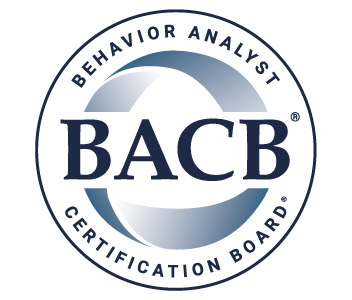The BACB’s certification programs are accredited by the National Commission for Certifying Agencies (NCCA), which mandates compliance with many rigorous standards intended to ensure the integrity of a professional certification program. One of those standards includes empaneling volunteers known as subject matter experts (SMEs) to contribute to the BACB’s examination development processes.
Examination Subject Matter Expert (SME)
Summary of Role
An examination SME is a volunteer who informs and guides the BACB’s ongoing examination development and maintenance processes. SMEs are knowledgeable about the applied behavior analysis (ABA) profession at all experience levels, from those just entering the profession to seasoned professionals.
Qualifications
To be considered to serve on a committee, applicants must meet all of the following criteria:
- be actively certified as an RBT, BCaBA, or BCBA
- be in good standing with the BACB
- currently work in a behavior-analytic role (e.g., practitioner, faculty, consultant, administrator, researcher)
- have no current involvement in developing or selling examination preparation content/workshops for a behavior analysis credential
Expectations
SMEs must adhere to the following expectations:
- complete all SME onboarding tasks
- be responsive to communications from BACB staff
- attend SME workshops and actively participate for the entirety of each event
- collaborate with other committee members to accomplish committee goals while maintaining polite, courteous, and professional communications
- meet assignment deadlines
- adhere to the BACB’s confidentiality policies, the Ethics Code for Behavior Analysts, and/or the RBT Ethics Code (2.0)
Types of Committees
BACB examination development requires a variety of committee types. Volunteers on these committees serve 2-year terms and meet in person at least twice a year.
- Item Writing: Item writing committees create multiple-choice items (i.e., multiple-choice questions) and content for BACB examinations.
- Item Review: Item review committees review and refine newly created examination content before it is placed on a BACB examination.
- Form Review: Form review committees review BACB examination forms before publication to ensure that all items are keyed correctly and all required specifications are met.
Training and Support
BACB staff members conduct appropriate training to prepare SMEs for their activities. Depending on the committee tasks, the training covers item writing/review, item performance evaluation, examination blueprint relevance, and the importance of security. SMEs also receive ongoing training and feedback throughout their term.
Benefits
- help advance the BACB’s mission of consumer protection
- get the opportunity to define and validate ABA practitioner activities
- collaborate and network with colleagues in the profession
- earn Learning CEUs that count toward recertification (BCBAs and BCaBAs)
- have on-site meeting travel expenditures reimbursed by the BACB
- meet and interact with BACB staff and leadership
Selection Process
When actively recruiting, the BACB will announce an open call for volunteers through various platforms. Certificants who wish to volunteer must complete an application with their current information. To ensure appropriate representation and address current examination needs/evolving field demands, the BACB will carefully review applications and select a diverse panel of SMEs. Selection criteria will include, but are not limited to, the following:
- demographics
- employment
- experience
- geography
- education
Once the BACB finalizes its committee selections, all applicants will be notified of their application status via email.
Frequently Asked Questions (FAQs)
Becoming an SME allows you to give back to the profession, collaborate with peers, and contribute to the BACB’s vital mission of consumer protection, all while furthering your professional growth. An added benefit for BCBAs and BCaBAs is earning Learning CEUs that count toward recertification. The BACB will also reimburse necessary travel expenses for on-site meetings.
No prior experience is necessary! The BACB will provide all required training.
Yes. We welcome certificants at all experience levels, as we need a wide range of perspectives to inform examinations that assess the knowledge required for entry-level professionals. A diverse panel also helps us ensure that examinations stay relevant and up to date by identifying any evolving skills needed in the profession.
Yes. SME participation is entirely voluntary and unpaid.
The length of service for each committee is 2 years. Committee involvement requires participation in virtual training and 2-day, in-person workshops.
Yes. SMEs are expected to travel to the BACB’s corporate office in Littleton, Colorado, for in-person examination development workshops. All necessary travel expenses (e.g., flights, lodging, mileage, parking) are paid by SMEs upfront and later reimbursed by the BACB.
A full commitment to the 2-day, in-person workshops is crucial for the most impactful experience. We encourage you to prioritize these workshops, as they provide a unique opportunity to collaborate with fellow SMEs through engaging discussions and interactive activities to work toward BACB examination development goals.
If you are selected for a committee, the process begins with signing a confidentiality and conflict of interest agreement. Next, you will undergo a virtual orientation and complete online training before participating in an in-person workshop. You will also receive ongoing training and feedback throughout your term.
Once the BACB finalizes committee selections, all applicants will be notified of their application status via email. Please see the Selection Process section for details.
We are not currently recruiting volunteers
